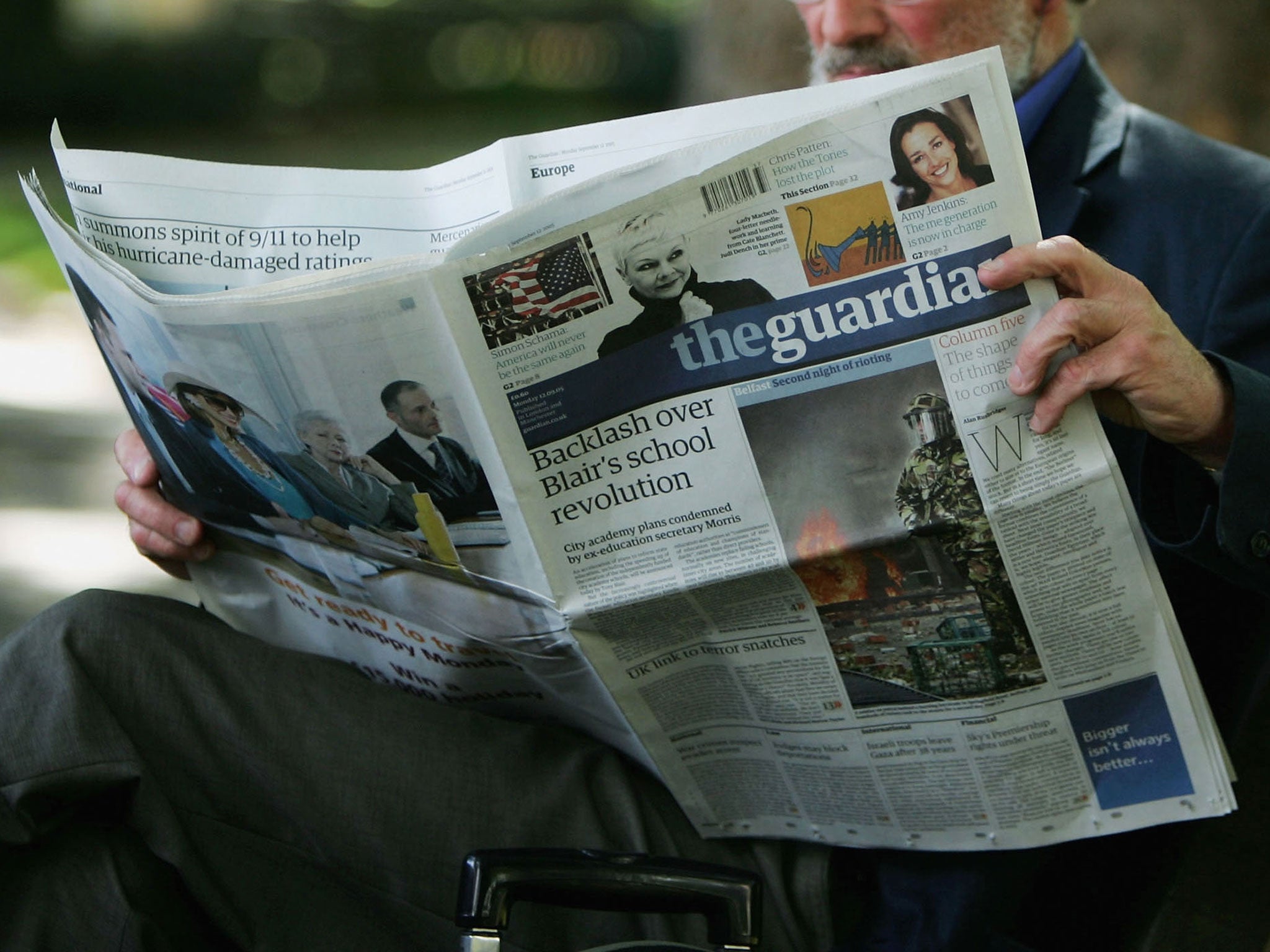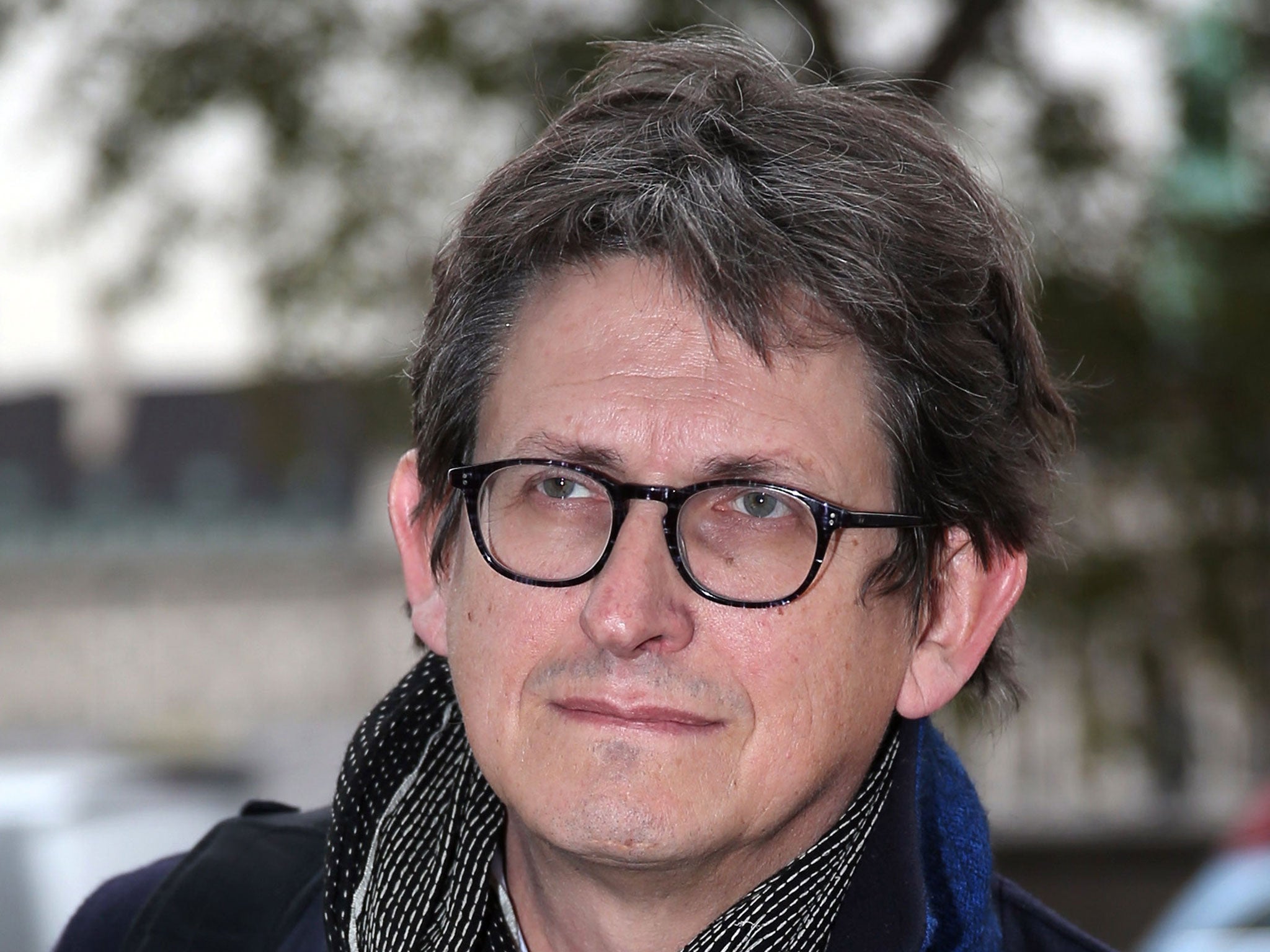The Guardian to make 20% cuts to 'safeguard' future of newspaper
Radical rethink to stem annual losses of £52m could even see GNM abandoning King’s Cross HQ

Your support helps us to tell the story
From reproductive rights to climate change to Big Tech, The Independent is on the ground when the story is developing. Whether it's investigating the financials of Elon Musk's pro-Trump PAC or producing our latest documentary, 'The A Word', which shines a light on the American women fighting for reproductive rights, we know how important it is to parse out the facts from the messaging.
At such a critical moment in US history, we need reporters on the ground. Your donation allows us to keep sending journalists to speak to both sides of the story.
The Independent is trusted by Americans across the entire political spectrum. And unlike many other quality news outlets, we choose not to lock Americans out of our reporting and analysis with paywalls. We believe quality journalism should be available to everyone, paid for by those who can afford it.
Your support makes all the difference.The publishers of The Guardian are planning 20 per cent cuts – amounting to around £50m - in order to stem annual losses of £52m and “safeguard” the future of the paper.
Guardian News & Media has been forced to radically rethink its future plans and is even discussing abandoning its prestigious headquarters at London’s King’s Cross, where it moved amid great fanfare in 2008.
“It’s very easy to look back and say The Guardian has made mistakes,” said GNM’s chief executive David Pemsel as he addressed staff on Monday.
The publishers revealed that its annual operating costs have expanded to £268m – up by 23 per cent in the last five years, during which time revenues have grown by only ten per cent. The publisher has spent £80m in cash in a year, draining a cash and investment fund which was boosted by the £619m sale of its stake in the car sales business Trader Media Group in 2014.
GNM’s annual operating losses of between £50m and £52m, are up on the £45.3m loss for the previous year. Revenues from print advertising, still the key source of income for the newspaper sector, fell by 25 per cent last year and were not offset by growing digital advertising income.

Mr Pemsel said that GNM was examining all options, including a departure from its Kings Place headquarters (although the immediate cuts do not demand that). His comments prompted concerns among staff of impending job losses. “Are we moving from King’s Cross? Nope. Are we looking at everything? Yes,” he told them. “I think it’s really important that I say that everything is in scope. In the end, what is most important is the quality of our journalism and the ability to have a plan that builds towards protecting the Guardian in perpetuity.”
The Guardian made significant job cuts in 2013. But in the past three years GNM has hired 479 people (one third of those in the United States and Australia), taking its total commercial and editorial staff to 1,960. The losses call into question the wisdom of the group’s expansionist policy in recent years, although it intends to continue to invest in operations in the US and Australia.
The planned cuts could scupper GNM’s ambitious plans to convert the Midlands Good Shed at King’s Cross into a 30,000 square feet cultural space. The centre was announced in September 2014 as a pivotal feature of the Guardian Membership scheme, which was launched with members offered access to Guardian events for subscriptions costing up to £60 a month.
In a 2014 promise, Jonathan Robinson, founding director of the proposed Guardian event space, said: “We are transforming the Midland Goods Shed into an open amphitheatre for festivals, acoustic gigs and debate, as well as including an intimate restaurant with a changing programme of chefs in residence, an armchair cinema, a 3D printing and fabrication lab, a rooftop garden, galleries and a dozen atmospheric spaces hosting events in everything from photojournalism to ceramics, from breaking news to works of fiction.”
GNM’s growth strategy was developed under the long-standing tenure as editor-in-chief of Alan Rusbridger, who will return to the organisation later this year as chair of the paper’s ownership body, the Scott Trust.
Mr Rusbridger was succeeded as editor-in-chief last year by Katharine Viner, who also addressed staff. “Over the next three years, a growing and far deeper set of relationships with our audience will result in a reimagining of our journalism, a sustainable business model and a newly-focused digital organisation that reflects our independence and our mission,” she promised.
Join our commenting forum
Join thought-provoking conversations, follow other Independent readers and see their replies
Comments